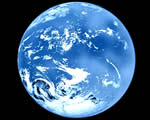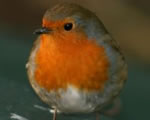 Go to main content
Go to main content
Archive Website of the UK government
Please note that this website has a UK government accesskeys system.
Main menu
Page menu
Environment and greener living

Pressures on the environment

The natural environment provides resources and services that are essential to life – like food, medicines and clean water. People’s actions are affecting the ability of the planet to provide these. You can help by doing things like wasting less food and buying products made with consideration for the environment.
The natural world and human well-being
Valuing nature
Around 50 per cent of all prescription medicines are based on chemicals from plants and animals
It is more important than ever that we understand the true value of protecting the natural environment:
- the natural world is essential for food production – seas and rivers provide fish, insects pollinate crops and living creatures form soils and keep them fertile
- natural wetlands store and purify water, remove harmful pollutants, and can help defend against floods
- around 50 per cent of all prescription medicines are based on chemicals from plants and animals
- natural areas and green spaces provide peace and quiet, and places for recreation and relaxation
What are these benefits worth?
Putting a monetary value on the services people get from the natural world demonstrates just how important they are. The natural world has a multi-trillion dollar value to the global economy.
Tackling poverty
The poorest people in the world often rely most immediately on the natural environment for their survival. Damage to the natural world has been identified as a major barrier to tackling extreme poverty. Goals like the campaign to ‘make poverty history’ are closely linked with looking after natural systems.
What’s happening to the natural world
The planet’s growing population is placing increasing demands upon natural resources including food, water, energy and materials. This demand - and the resulting waste – damages the natural world and leads to problems like:
- rapid change to natural habitats, including clearing forests to grow food
- too much being taken from natural systems to allow them to replenish – for example, fish are being caught faster than they can be replaced
- substances being produced which do not exist in nature – some do not break down and can be toxic to plants and animals
- increasing greenhouse gas emissions that contribute to climate change
In 1961, the human population used around half of the benefits that the earth’s natural systems can keep providing year after year. By 2001, people were using 20 per cent more than the world can provide without natural systems becoming damaged or depleted. Over half of the main benefits provided by the natural world show signs of decline. This includes its ability to break down waste that people produce, purify water, and provide natural fisheries.
Why it matters
Human pressures are undermining the natural world’s ability to keep providing the essentials of life. This has serious consequences for the world’s economy and people’s well-being everywhere.
Nature does lots of things for free
Peat bogs naturally store up to 5 billion tonnes of carbon dioxide that would otherwise be released into the atmosphere. Damage to these bogs, through drainage and removing to be used in compost, means their valuable role as carbon stores will be lost.
Nature can also help with things like flood prevention. Wetlands and wooded valleys can slow and hold water, reducing the need for costly man-made flood defences.
There are some vital things that only nature can do
Some natural systems, such as pollination and soil formation, are essential to our way of life. They are so complex that they would be irreplaceable if lost.
Damage to the natural world costs money
Globally, it is estimated that damage to the world’s natural systems costs over £42 billion each year. In the UK, air pollution reduces life expectancy by an average of 6 months, at a cost to society of £15 billion per year.
A healthy natural environment contributes to a healthy society
People who live close to accessible green spaces are much more likely get healthy levels of physical activity. And making just one per cent of inactive people more active could see savings of £1.44 billion in the UK.
What you can do
You can make a difference

There is a lot that you can do in your everyday life to help
The natural world is a British passion. Viewing figures for Springwatch (a programme about British wildlife) have previously rivaled those of Big Brother. But it can sometimes be hard to see how a single person can make a difference.
The damage is ultimately being caused by people’s everyday demands. So, by thinking about your everyday actions, there is a lot you can do. Follow the link below to find out what you can do to make a difference.
 Facebook
Facebook Twitter
Twitter StumbleUpon
StumbleUpon Delicious
Delicious Reddit
Reddit